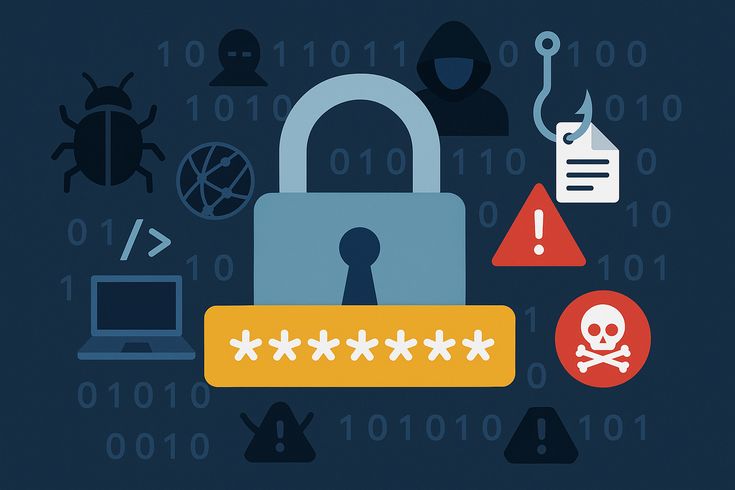For years, tech experts have been making the same prediction: “Passwords are dead.” And yet, here we are in 2025, still typing in passwords every single day. From logging into Instagram to checking our bank apps, passwords remain the default way we prove who we are online. If they were supposed to die, why are they still alive and kicking? The answer is simple: people love the convenience of typing in something they know. But here’s the twist passwords may not be dying at all. They may just be reinventing themselves into something smarter, stronger, and harder for hackers to exploit.
Let’s be real: passwords are a mess. Most people reuse the same few passwords across dozens of accounts. That “one password” often ends up in data breaches, leaked on the dark web, and used by hackers to break into everything else. Attackers don’t even need to guess anymore, they just buy stolen credentials in bulk. And no matter how many times cybersecurity experts preach about “using strong, unique passwords,” human behavior hasn’t changed much. After all, who can actually remember 50 different combinations of letters, numbers, and symbols?
This is why we’ve seen the rise of alternatives. Biometrics, like fingerprints, face scans, and even iris recognition, have become mainstream, especially on smartphones. Then there are “passkeys,” which companies like Apple and Google are pushing. Passkeys replace passwords with cryptographic keys that are tied to your device, making them much harder to steal. In labs and research papers, scientists are even testing brainwave authentication, yes, logging in with your thoughts.
But here’s the interesting part: none of these methods have fully replaced passwords. Biometrics can fail or be spoofed. Passkeys are still new and not universally adopted. Brainwave login sounds futuristic, but it’s nowhere near ready for everyday use. The truth is, passwords are too deeply woven into the fabric of the internet to vanish overnight. They’ve been with us since the very beginning of digital life and tearing them out completely is a much bigger challenge than people admit.
So maybe passwords aren’t dying. Maybe they’re evolving. Instead of the weak, guessable strings of text we’ve relied on for decades, we’re seeing new forms, multi-factor logins that combine passwords with biometrics, password managers that create uncrackable vaults, and adaptive systems that monitor behavior (like typing speed or device location) to confirm your identity. In this sense, the future of passwords is less about replacing them and more about upgrading them into a bigger, smarter security ecosystem.
For everyday people, what does this mean? It means that the old advice still holds: don’t reuse passwords, use a password manager, and enable multi-factor authentication wherever you can. But it also means that in the next few years, you might find yourself logging into accounts without ever typing a single password again. Instead, you might scan your fingerprint, use a passkey on your phone, or rely on invisible AI systems that know it’s you based on your habits.
So, are passwords dead? Not exactly. They’re too stubborn, too human, and too convenient to fully disappear. But they are being reinvented. The password of tomorrow won’t look like the one you use today. It won’t just be a line of text, it will be part of a bigger web of identity protection. And when that day comes, the phrase “what’s your password?” might finally sound as old-fashioned as dial-up internet.

